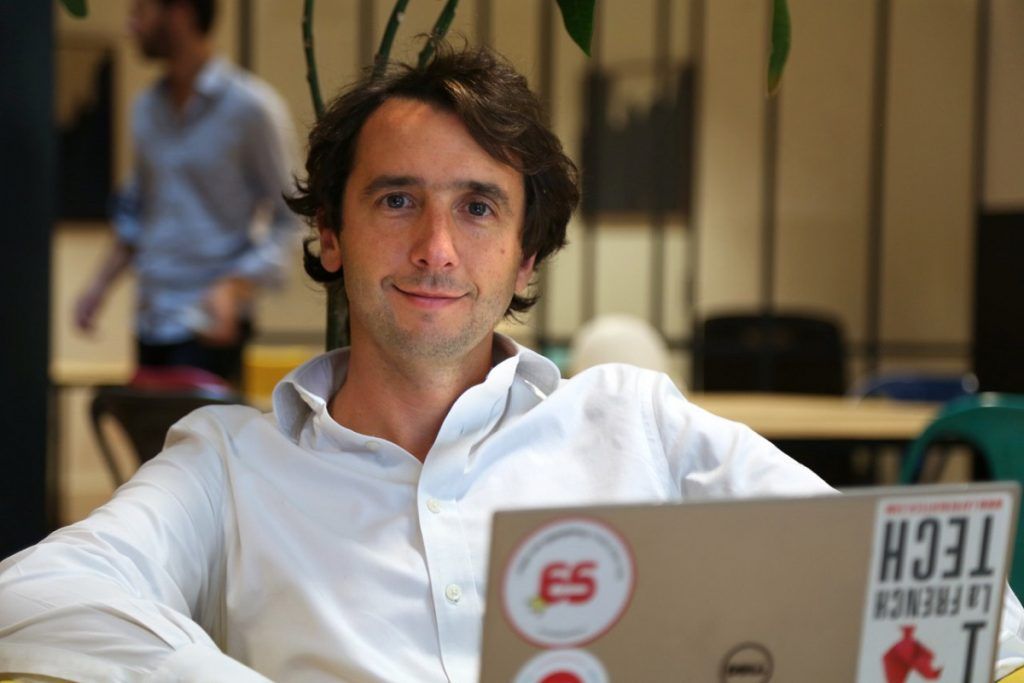Home Swapping Platform Aims to Further Expand in Greece – Interview with ‘GuestToGuest’ President
“Greece is a little bit like home exchange: Once you’ve tried it, you stick to it!”
By Eleftheria Pantziou
Home swapping is a growing trend in the United States and in southeastern Europe, which encompasses a new community of travelers, who visit their favorite destinations while enjoying the comfort and coziness of a real home at no charge. A leader in the home exchange industry, GuestToGuest in the last four years has grown its network by acquiring a number of home swapping platforms in Europe, including HomeExchange, thus creating a network of over 400,000 listings in 187 countries.
A member of the HomeExchange network, Greece currently counts 128 members around the country in destinations including Athens and islands such as Samos, Santorini, Crete, Zakynthos, Corfu, Rhodes and Syros. Aiming to attract even more members in the Greek market, GuestToGuest this week will host its annual meeting in Athens. The Greek Travel Pages (GTP) caught up with GuestToGuest president and HomeExchange CEO, Emmanuel Arnaud and discussed various topics including the increasing number of home swappers around the world, as well as on the potential of the Greek market.
“We are excited to have our annual meeting in Athens, because we are convinced that home exchange can benefit Greek people in many different ways. I don’t have to tell you that Greece is a favourite destination to Northern Europeans, with an incredibly diversified offer.”
- When and where was the home exchange concept first launched and introduced to holidaymakers? How fast has it grown since then?
Emmanuel Arnaud: The concept of home exchange is attributed to US academics back in the 50’s, who found a practical and affordable way to stay for short term or long term missions in other campuses. Typically, they trusted each other because they felt they belonged to the same academic community.
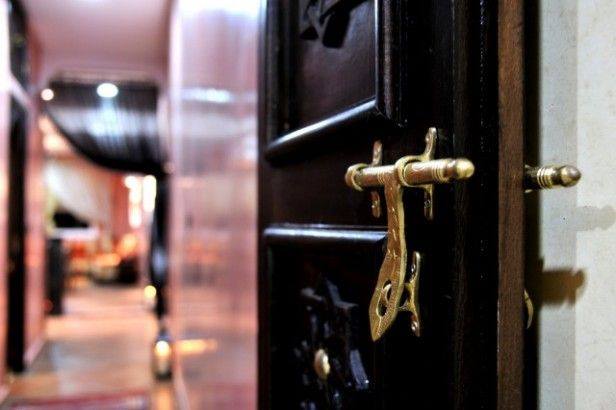 What we offer now is just an extension of this: We provide to a larger community of like-minded travelers the opportunity to exchange their homes and enjoy free vacations with their families.
What we offer now is just an extension of this: We provide to a larger community of like-minded travelers the opportunity to exchange their homes and enjoy free vacations with their families.
The home exchange concept started to pick up in the 90’s, with the rise of the internet. The movie “The Holiday” in 2006 was a milestone, as the concept became more popular. HomeExchange was a pioneer as it rapidly expanded in North America first and in western Europe in the 2000’s.
Southern and Eastern Europe, as well as Australia and New Zealand are catching up. We see rising figures in South America, while a community of mainly expatriates is currently expanding the concept to Asia.
“Since there is no money changing hands, home exchange is legal and tax free. It is like having family or friends in you home while you are away.”
- Which are the leading home exchange markets globally at the moment?
Emmanuel Arnaud: The US is indisputably the birth country of home exchange. This being said, Canada and Western Europe soon embraced the concept, creating a very active community of travelers on both sides of the Atlantic. France has been a trailblazer in Europe.
I had the idea of the “Guest Points” system in 2011, when I wanted to travel to Florence during the Christmas holidays. At that time, home exchange was becoming popular but my family and I faced a difficulty: The Italian family was ready to welcome us, but they did not wish to go to Paris. This triggered the idea on how to resolve the main hurdle of home exchange: Reciprocity. I then decided to create a point-based system, “Guest Points”, to allow non-reciprocal exchanges. The GuestToGuest model was born. Our ambition from day one was to serve millions of users.
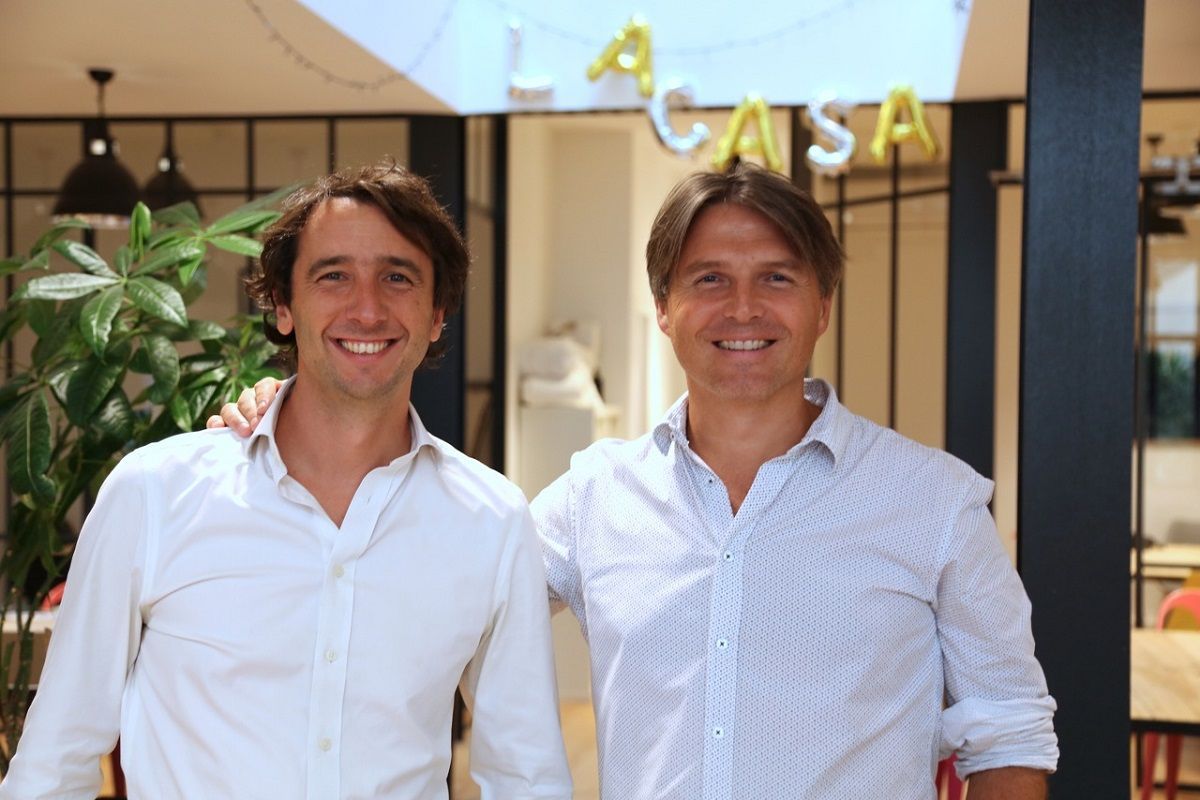
Emmanuel Arnaud and GuestToGuest co-founder and HomeExchange executive chairman Charles-Edouard Girard.
A first round of fundraising with business “angels” allowed the implementation of a massive acquisition strategy, notably based on web marketing campaigns and the purchase of competitors. In November 2013, two years after its creation, GuestToGuest began its internationalization phase by acquiring the English network Itamos.
The collaborative trend and its growing influence on travelers attracted investors. GuestToGuest successfully completed three fundraising rounds enabling us to raise 6 million dollars in 2014-2015. These back-to-back operations allowed GuestToGuest to quadruple listings and the number of employees between 2014 and 2015.
Galvanized by this success, we decided to consolidate new markets. In 2016, GuestToGuest acquired its French competitor Trampolinn and its Spanish competitor HomeForHome.
In November 2015, my business partner Charles-Edouard Girard and I went to New York City as part of a group of entrepreneurs. The objective was to meet with American and French entrepreneurs, who were successful in the U.S. That trip was an eye opener for us on the size of the U.S. market. This is when we first had the idea to acquire HomeExchange, which we did in February 2017.
- Is there a specific group of travelers that home exchange targets or is it a service addressed to all?
Emmanuel Arnaud: We can see some common ground within the home exchange community. Over 50 percent across the board are families, traveling with kids. They are the great beneficiaries of home exchange, providing and enjoying the comfort and coziness of a real home for free. It is also a way to live like a local and experience cultural immersion, a benefit which is also greatly appreciated by active retirees, another large segment of users.
As we see home exchange attracting a larger target, we are convinced that millions of travelers around the world will soon benefit from home exchange. Hospitality is one of the most shared values in the world. Technology has made interactions possible, which were impossible only a few years ago.
Being an interconnected society, we have learned to trust and share for mutual benefit. The practice of home exchange is by all means new but it is also one of the clearest evolutionary paths of the new trends of the society as a whole. And this is particularly true for travel as well.
- How can a traveler be sure of the quality of the property he will stay in? And how can one ensure that his/her property will remain in a good condition, while home swapping?
Emmanuel Arnaud: There are no downsides to home exchange. The only thing required is a small leap of faith. And we help travelers make that leap by creating trust in a number of ways: First, every single user of GuestToGuest and HomeExchange is equally a guest AND a host. As a result, people behave as guests in their exchange home, exactly the way they expect their home to be treated as hosts. The truly collaborative experience creates a radically different dynamic between peers, than what you can expect on rental platforms. The sense of community is pivotal and unique.
In addition to that, it is our mission as trusted third parties to make sure home exchange is safe. Our safety process includes a secured messaging system, ID verification and vetting of listings. GuestToGuest offers on demand insurance and deposit as additional services.
- How many members do “GuestToGuest” and the recently acquired “HomeExchange” count at the moment? Why are the two networks separate?
Emmanuel Arnaud: With the acquisition of HomeExchange in February 2017, we created the world’s leader in the home swapping market with more than 400,000 homes in the collective inventory.
 While there is strong affinity between platforms, both brands remain separate and continue to function within their own targeted spaces and membership base: HomeExchange premium and GuestToGuest mainstream. We are going to make it easy for those members, who are more on the premium side of GuestToGuest to join HomeExchange if they want to. We will also facilitate HomeExchange members, who joined and stopped when payment was asked, to join GuestToGuest. HomeExchange has a massive database of such members and we think GuestToGuest is ideally positioned to reactivate some of them, thanks to its freemium model.
While there is strong affinity between platforms, both brands remain separate and continue to function within their own targeted spaces and membership base: HomeExchange premium and GuestToGuest mainstream. We are going to make it easy for those members, who are more on the premium side of GuestToGuest to join HomeExchange if they want to. We will also facilitate HomeExchange members, who joined and stopped when payment was asked, to join GuestToGuest. HomeExchange has a massive database of such members and we think GuestToGuest is ideally positioned to reactivate some of them, thanks to its freemium model.
On the other hand GuestToGuest aso has a number of premium homes. When you are the owner of a very nice home, you may be interested in the opportunity of exchanging homes within the same category. This is where HomeExchange offers the perfect alternative. On the product side we want to make some improvements based of each brand’s strengths.
On a more personal note, I’m relocating with my family to the US, to ensure our success in the world’s first travel market.
- How can a homeowner become a member? Is there a charge to search for homes and to get in contact with members?
Emmanuel Arnaud: First of all, you do not have to be a homeowner to become a member. Since there is no money changing hands, home exchange is legal and tax free. It is like having family or friends in you home while you are away.
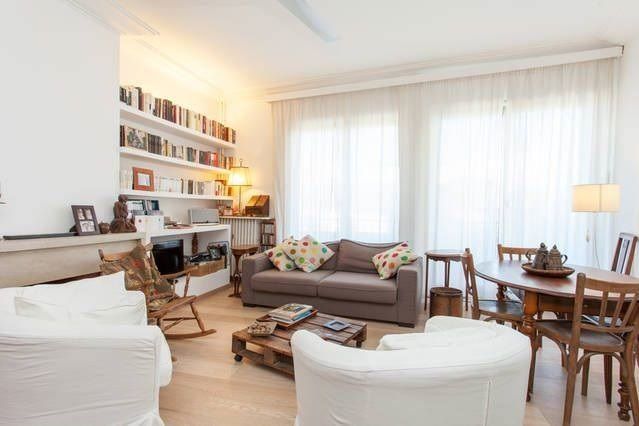 GuestToGuest is based on a freemium business model, which makes it easy for people to join the website, and therefore increase every other member’s opportunities to exchange. Our Guest Points system offers the freedom and flexibility.
GuestToGuest is based on a freemium business model, which makes it easy for people to join the website, and therefore increase every other member’s opportunities to exchange. Our Guest Points system offers the freedom and flexibility.
We were the first to facilitate non-reciprocal home exchanges, in addition to the traditional “you stay in my house while I stay in yours” system.
While home exchange is totally free, verification, deposit and insurance are offered as optional services.
HomeExchange is subscription based, like a club. Members can join for an annual fee of US $150 and exchange as many times as they wish at no additional cost. Reciprocal exchange is at the core of the the club, which favors in many ways the sense of community.
However, HomeExchange recently introduced the “Balloons”, a one-way non-reciprocal exchange option that members have been seeking. They now earn the opportunity to stay in the destinations of their choice just by hosting different members. This adds a lot of flexibility, especially for second home owners.
Greece is one of the most attractive destinations for home-exchangers.
- When did this service enter the Greek market and how many Greek members do you count today?
Emmanuel Arnaud: HomeExchange created its first branch in Greece in 2011 and today counts 128 members. Greece, according to our internal surveys, is one of the most attractive destinations for home exchangers, and one of the few countries where the demand surpasses the offer.
 HomeExchange, being a subscription-based model, was historically easily established in countries where subscription-based services were inherent to the local culture, which is not the case in Greece. Having said that, we’re very optimistic about our prospects in Greece, because HomeExchange, in the context of its merger with GuestToGuest, as of today offers a freemium model that allows people to exchange their homes for free, and pay for optional services (such as insurance) on a pay-per-use basis.
HomeExchange, being a subscription-based model, was historically easily established in countries where subscription-based services were inherent to the local culture, which is not the case in Greece. Having said that, we’re very optimistic about our prospects in Greece, because HomeExchange, in the context of its merger with GuestToGuest, as of today offers a freemium model that allows people to exchange their homes for free, and pay for optional services (such as insurance) on a pay-per-use basis.
- Since home exchange is a new trend in Greece there isn’t a legal framework or tax system to regulate the market. Based on your experience in other countries, is there a legislation framework required, in order for home swapping to operate and further expand in Greece?
Emmanuel Arnaud: There is no need for any specific legislation! Through home exchange travelers can benefit from completely free accommodations around the world without any money changing hands. Home exchange does not have any of the drawbacks that rental platforms have, such as taxes, bans and other issues currently affecting large cities and tourism regions. Home exchange will develop as the real sharing alternative in accommodation.
- What are your long term goals in regards to the Greek market?
Emmanuel Arnaud: We are excited to have our annual meeting in Athens, because we are convinced that home exchange can benefit Greek people in many different ways. I don’t have to tell you that Greece is a favourite destination to Northern Europeans, with an incredibly diversified offer. Greece is a little bit like home exchange: once you’ve tried it, you stick to it!
More seriously, we want to grow by the numbers but also by the engagement and create an active community of people, who will enjoy the concept and use it at their convenience. We want to prove to Greek travelers that home exchange is a wonderful travel option, which will add a lot of value to their lives, as it did to ours.
With GuestToGuest and HomeExchange, we now have the prepositions to serve different demographics and styles. It is definitely the moment to get the word out to your audience!
- Who would you say are the main competitors of HomeExchange (hotels, short term rental companies)?
Emmanuel Arnaud: We‘ve established a game-changing alternative to platforms such as Airbnb and HomeAway. The word “free”, for good reasons, has a strong power of attraction. We offer a safe and user-friendly option to host and stay for free.
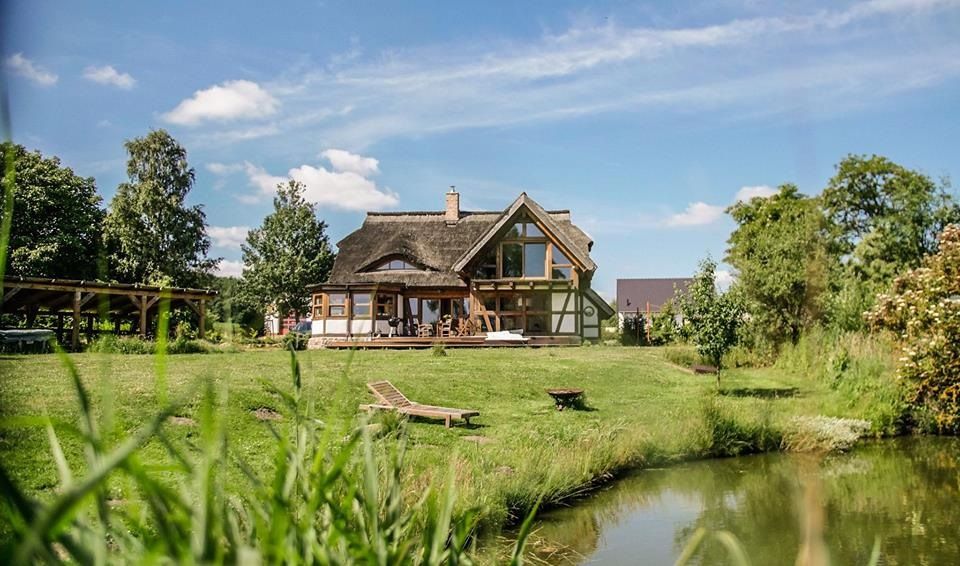 The benefits of home exchange are many: First, of course, you do not need to pay for accommodation. That alone means hundreds or thousands euros of savings on your vacation budget. Also, you save on food as you can cook at home. In 25 percent of cases a car is included in the exchange. When travelling with kids, children can simply use the toys and bicycles available in the exchange home.
The benefits of home exchange are many: First, of course, you do not need to pay for accommodation. That alone means hundreds or thousands euros of savings on your vacation budget. Also, you save on food as you can cook at home. In 25 percent of cases a car is included in the exchange. When travelling with kids, children can simply use the toys and bicycles available in the exchange home.
What makes home exchange unique is the kind of relationship people establish. Trust is truly at the core of the concept and creates a radically different experience.
A secondary benefit is that your guest is staying at your place, keeping it safe from potential robbers, while also watering your garden!
- Following the acquisition of HomeExchange, what is your next step?
Emmanuel Arnaud: We now have a very strong offer, both in quantity — over 400,000 listings in 187 countries — and services. Going forward we want to serve 1 million members in the next 2 years and keep on initiating new people to this amazing way of travelling.
- Greece is expected to see a record year in arrivals. How do you see Greece as a holiday destination in the global tourism industry?
Emmanuel Arnaud: Greece is THE ideal tourism destination. There is a paradox with Greece’s growth in arrivals: It is an established holiday destination and yet it keeps growing as a market, and if I have read correctly, it will keep growing for a long time. Why? Because it combines an immense natural beauty, a culture and a civilization rich in historical referencesand vibrant people with a contemporary lifestyle “envied” by the tourists who visit the country. This is almost unique in the tourism market.
I don’t know whether this has been a conscious decision or not, but Greece – and this is a point of conversion with our mindset in GuestToGuest – did not make the crucial mistake to invest in mass tourism (or I would say industrial tourism), thus “sell its soul”. It has protected its most valuable asset: The beauty of the place and of the people. This is an intriguing contradiction within the tourism industry: You remain attractive only if you resist the temptation of building an industrial faceless business model, which would bring only short term tourism receipts.

